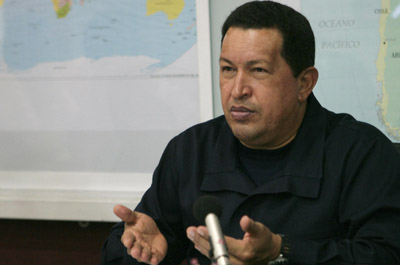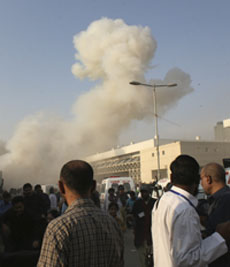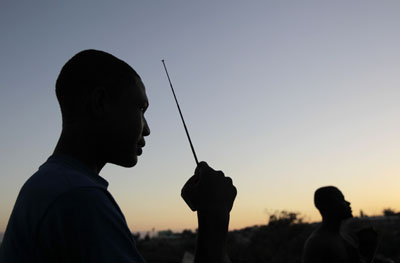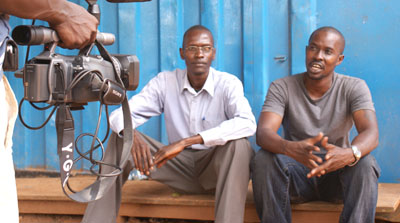
Provisional media death toll rising in Haiti
A month after the January 12 earthquake, the death toll for journalists has risen to 26, with two others injured, according to a new provisional tally released by media groups in Haiti. Under the umbrella of International Media Support, a joint mission of press groups (including the Association of Haitian Journalists, SOS Journalistes, and the…

‘Suddenly,’ Chávez is on the radio (yet again)
Venezuelan President Hugo Chávez Frías has used cadenas—nationwide radio and television addresses that preempt programming on all stations—to challenge the private media’s news coverage and amplify the government’s voice. In his radio and TV call-in program, “Aló, Presidente” (Hello, President), Chávez often lambastes critics in the media and the political opposition.
Mexican journalist said things ‘very hard’ just before murder
Over the weekend I spent several hours with two prominent journalists in Chilpancingo, Mexico, wondering who murdered their colleague Jorge Ochoa Martínez on January 29, and hearing about some of the seemingly unbearable pressures on Mexican journalists. Ochoa was shot in the face as he was leaving a birthday party for a local politician in…

Newspapers cut staff and are unable to print in Haiti
The two Haitian dailies, Le Nouvelliste and Le Matin, are still coping with the devastating effects of the January earthquake. Though these outlets continue to disseminate news via the Internet, it will take them some time to resume publishing in print.

An update on the Karachi double bombing
On February 5, I blogged about three vicious bomb blasts in Pakistan in the previous two days—“one in Lower Dir that wounded three reporters on Thursday, and Friday’s double attack in Karachi that we’re still investigating.” I argued that media companies in Pakistan must start taking responsibility for protecting their employees in the field. I had…

Chinese writer ends Japanese exile after 90 days in airport
A Chinese dissident who writes about rights abuses is ending an involuntary exile in Japan on Friday. Or so he hopes. Feng Zhenghu has booked a flight departing Japan’s Narita Airport for Shanghai at 9:45 a.m. on February 12. That was the topic of an impromptu press conference held Monday afternoon in the brightly lit…

Internews provides critical news to use in Haiti
Every evening, between 9 and 10 p.m., people in areas affected by the January 12 earthquake listen to the program “Nouvel pou nou Konnen” (News to Know). Huddled in tents or sitting in the open air, men and women cling to their transistor radios to get news on the latest decisions of the Haitian government…

Freedom of information laws struggle to take hold in Africa
In Uganda, a ruling this week in a landmark case of two journalists seeking to compel their government’s disclosure of multinationals oil deals highlighted the challenges to public transparency just before media leaders, press freedom advocates, officials, and former U.S. President Jimmy Carter gather in Ghana next week at the African Regional Conference on the Right…
Is Sri Lanka done assaulting the media?
It was good to hear Sri Lankan President Mahinda Rajapaksa point out in his Independence Day speech on Thursday that the country “cannot be developed with harassment, gross punishments or by the gun.” But the sentence that followed that—“Discipline is not revenge”—gives cause for concern. Rajapaksa’s speech marked the 62nd anniversary of the country’s independence…
